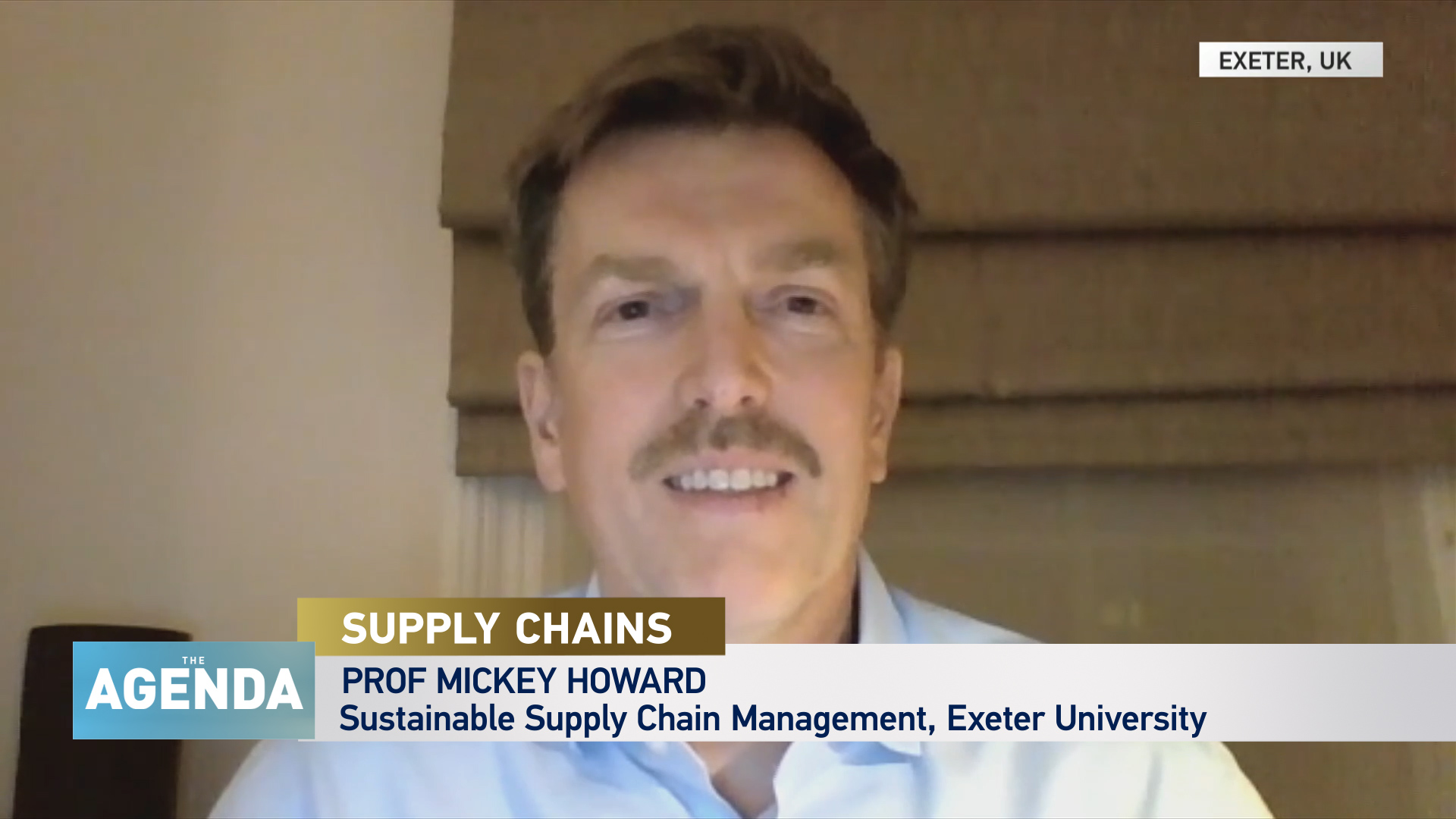05:27

WHAT'S THE ISSUE?
As we head into the festive season with product shortages still tainting our festivities, many will be wondering when the shelves will be full again. Is the supply struggle a pandemic-related blip, or are these ongoing problems here to stay?
To explain what's gone wrong, The Agenda's Stephen Cole speaks to Mickey Howard, professor in sustainable supply chain management at Exeter University, who says the key point to remember about supply chains is that they are driven by information and some of it is real time, some of it is a bit dodgy, some of it has been downright wrong.
Howard says these problems are temporary, but he suspects this is a wake-up call to start thinking a little bit more about terms such as the circular economy moving away from globalization and thinking about a more local way of working.
"Of course, this has got huge ramifications for local business. But I think we've become too used to having our fresh fruit and vegetable shipped over either by air or by freight."

MEET THE EXPERT:
Mickey Howard is a professor in sustainable supply chain management at Exeter University.
His research focuses on sustainable systems and the transition to a circular economy.
In addition, Howard is adviser to the Chartered Institute of Purchasing & Supply Education Executive.


ALSO ON THE AGENDA
- Tom Van Woensel, director of the European Supply Chain Forum and professor of freight transport and logistics at Eindhoven University of Technology, explains the impossible task of planning for the "unknown unknowns" and why it's not always in a company's interest to build supply chains that can sufficiently cope with unlikely, but severe, natural disasters.
- Qu Qiang, assistant director of the International Monetary Institute at Renmin University of China, tells Stephen Cole China wants to share its capacity and production power with other countries to make the overall global shipping process easier and cheaper for all.
- Tom Bradshaw, vice-president of the UK's National Farmers' Union joins Cole to explain why the ongoing issues should act as a wake-up call for the world to reconsider globalization and start sourcing food and products locally instead.

